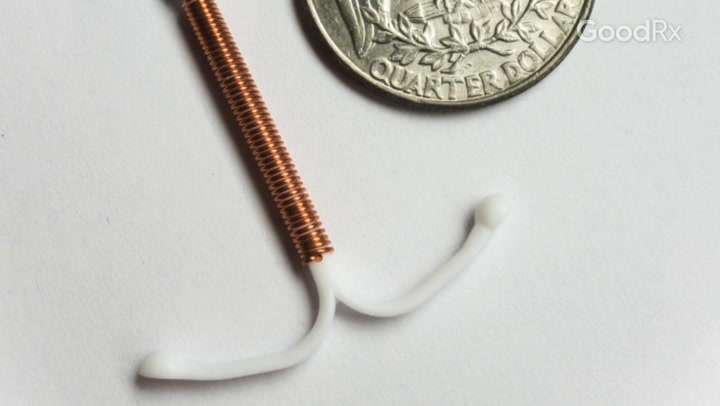
Is It Safe to Delay My Period?
Key takeaways:
Delaying a menstrual period is a common practice. People do this for a variety of medical or personal reasons.
Using hormonal birth control is the most common way to delay periods. This is an off-label use, so talk to your provider to see if it’s an option for you.
Delaying or skipping your periods is safe and effective. In many cases, you can do it over the long term.

Menstrual periods can affect each person differently. For some, having a period every month feels natural, and it’s a sign of good health. Others may view it as confirmation that they are not pregnant. But some people prefer not to have a monthly period. Medical problems, lifestyle, or personal choice can make delaying periods a better option. Hormonal birth control allows you to control when you have a period.
Can I delay my period?
“Menstrual suppression” is the medical term for skipping your period or controlling when you get your period. During a normal menstrual cycle, hormones cause an egg to release from an ovary. The lining of your uterus then thickens to prepare for a pregnancy. If there’s no pregnancy, that lining sheds and you get your period instead. This process repeats each month.
When you’re trying to prevent pregnancy, hormonal birth control interrupts this process. It can also help to delay periods in people who have a medical condition or other reason to skip their cycle. About half of the people who delay or skip their periods do so as a personal preference.
Search and compare options
How can I delay my period?
You can delay your period by using hormonal birth control. If you use birth control to prevent pregnancy, you will typically still have a monthly period. The bleeding you have once a month comes when you have a hormone-free week. This is “withdrawal bleeding.” But you can manage your hormones to delay your withdrawal bleeding. This allows you to skip your period.
There are several ways to use hormonal birth control to delay or skip periods. Options include:
Birth control pills
Contraceptive patch
Vaginal ring
Progestin-only birth control
Keep in mind that these methods to delay your period are an off-label use. This means that although it may not be harmful, the FDA hasn’t approved it for this use. So speak with your healthcare provider before using any of these methods to delay your period.
Birth control pills
Birth control pills usually come with 21 active pills (pills that contain hormones) and 7 placebo pills (pills without hormones). You can skip your periods by throwing away the placebo pills and starting the active pills of a new pack of pills. When you want to have a period, you can finish the pack by taking your placebo pills or no pills at all that week.
Not every birth control pill is the same. Some birth control pills are "extended-cycle" pills. This means they have 3 months of active pills. If you use them as directed, you will have a period once every 3 months. Other birth control pills only have active pills. This means you can skip your periods by going right into a new pack.
Contraceptive patch
The usual way of using a contraceptive patch is to apply a new patch once a week for 3 weeks. You then have a patch-free week that allows you to get your period. If you want to skip your period, you can go right into your next pack of patches instead of having a patch-free week.
When wearing the patch, you absorb a higher dose of estrogen than other forms of birth control. And this may lead to a higher risk of blood clots. So continuously using patches may not be your best option for skipping periods. Speak with your healthcare provider before using the patch in this way to make sure that it’s safe for you.
Vaginal ring
Typical use of a vaginal ring is to insert it into the vagina for 21 days and then remove it for 1 week. If you want to skip your period, you can put in a new ring instead of having a ring-free week. The Annovera ring is reusable, so you can use it up to 1 year before you need to replace it.
Progestin-only birth control
Other medications do not allow you to be as selective about when you have a period. This is the case for progestin-only methods, such as:
Medroxyprogesterone (Depo-Provera) injection
Progestin-only mini pill
Hormone-releasing IUD, like Mirena (levonorgestrel)
Implant, like Nexplanon (etonogestrel)
Although you may have skipped periods with these methods, you can’t choose when that happens. But for many people, their periods will go away over time if they use them as directed.
There are other types of medications that people with certain health conditions can use to delay periods. This may be useful for people with severe endometriosis or for those who are undergoing cancer treatment. Lupron Depot (leuprolide) is an example of a medication often used in these circumstances.
What are natural ways to delay my period?
There’s no evidence that any natural supplements or foods can help you delay your period. You may have delays in your period if you have high levels of stress or participate in extreme types of exercise. But this is often in ways that you can’t control.
Physical or emotional stress causes your body to release cortisol. This hormone may make your period become lighter, less frequent, or stop completely.
What are the benefits of delaying my period?
There can be many benefits to delaying your period if you have a lot of menstrual symptoms. Some people have a very challenging monthly cycle. This may be true if you have premenstrual (PMS) symptoms, like heavy bleeding and cramping. Sometimes these symptoms interfere with your normal daily activities. So skipping periods can include a better quality of life and fewer absences from work or school due to your period.
Other reasons you may want to skip or delay your period are:
Medical reasons: Delaying a period can treat some conditions that hormones trigger. This can include endometriosis, migraines, fibroids, or acne.
Personal hygiene: If you have disabilities or developmental delays, it may be easier to skip periods.
Personal preference: Some people prefer to have fewer periods or to avoid them when it’s convenient.
How long is it safe to delay my period?
Using birth control to delay your period is as effective and safe as using it on a 28-day cycle. You can delay having your period for as long or as little as you like. But there can be side effects from delaying your period.
The most common side effect of skipping periods is breakthrough bleeding. This is a small amount of bleeding when you don’t expect it. Breakthrough bleeding is common in the first few months that you skip your period. This may improve as your body adjusts to the hormones.
What are the health risks of delaying my period?
There are some risks that come with using hormonal birth control. But delaying your period does not have more risk than the traditional way of using birth control. Risks of using hormonal birth control can include:
Increased chance of blood clots
Increased blood pressure
Cardiovascular problems (like heart attack or stroke)
There are also some potential risks from long-term use of the Depo-Provera injection. Using the injection for years may cause you to lose bone minerals. This may increase your risk for fractures or osteoporosis (thinning of the bones). And more bone loss can occur the longer you use it. This bone loss usually improves after you stop using it. But it does not always reverse completely. Talk to your provider about the safety of Depo-Provera if you’re using it to skip your periods.
Does skipping my period affect my fertility?
If you have used birth control to skip your periods, there’s no need to worry about your fertility. After you stop using birth control, your body will resume monthly cycles, and you may be able to conceive. Most people are able to get pregnant within 12 months of stopping any kind of hormonal birth control. The average time to return to your previous level of fertility ranges from three to six menstrual cycles.
The bottom line
For some people, having monthly periods disrupts daily activities. But the good news is that you may be able to choose when you have your period. Delaying your period is also a safe and effective way to treat certain medical conditions and prevent pregnancy. Or it may also be a matter of preference and convenience. Talk with your healthcare provider to see if skipping your periods may be an option for you.
Why trust our experts?


References
American College of Obstetricians and Gynecologists. (2020). Depot medroxyprogesterone acetate and bone effects.
American Psychological Association. (2018). Stress effects on the body.
Edelman, A., et al. (2014). Continuous or extended cycle vs. cyclic use of combined hormonal contraceptives for contraception. Cochrane Database of Systematic Reviews.
French, V. (2021). What you should know about breakthrough bleeding with birth control. American College of Obstetricians and Gynecologists.
Galzote, R. M., et al. (2017). Transdermal delivery of combined hormonal contraception: A review of the current literature. International Journal of Women’s Health.
Girum, T., et al. (2018). Return of fertility after discontinuation of contraception: A systematic review and meta-analysis. Contraception and Reproductive Medicine.
Hillard, P. A. (2014). Menstrual suppression: Current perspectives. International Journal of Women’s Health.
Lakehomer, H., et al. (2013). Characteristics of scheduled bleeding manipulation with combined hormonal contraception in university students. Contraception.
MedlinePlus. (2020). Birth control pills.
Mikkelsen, E. M., et al. (2013). Pre-gravid oral contraceptive use and time to pregnancy: A Danish prospective cohort study. Human Reproduction.

























